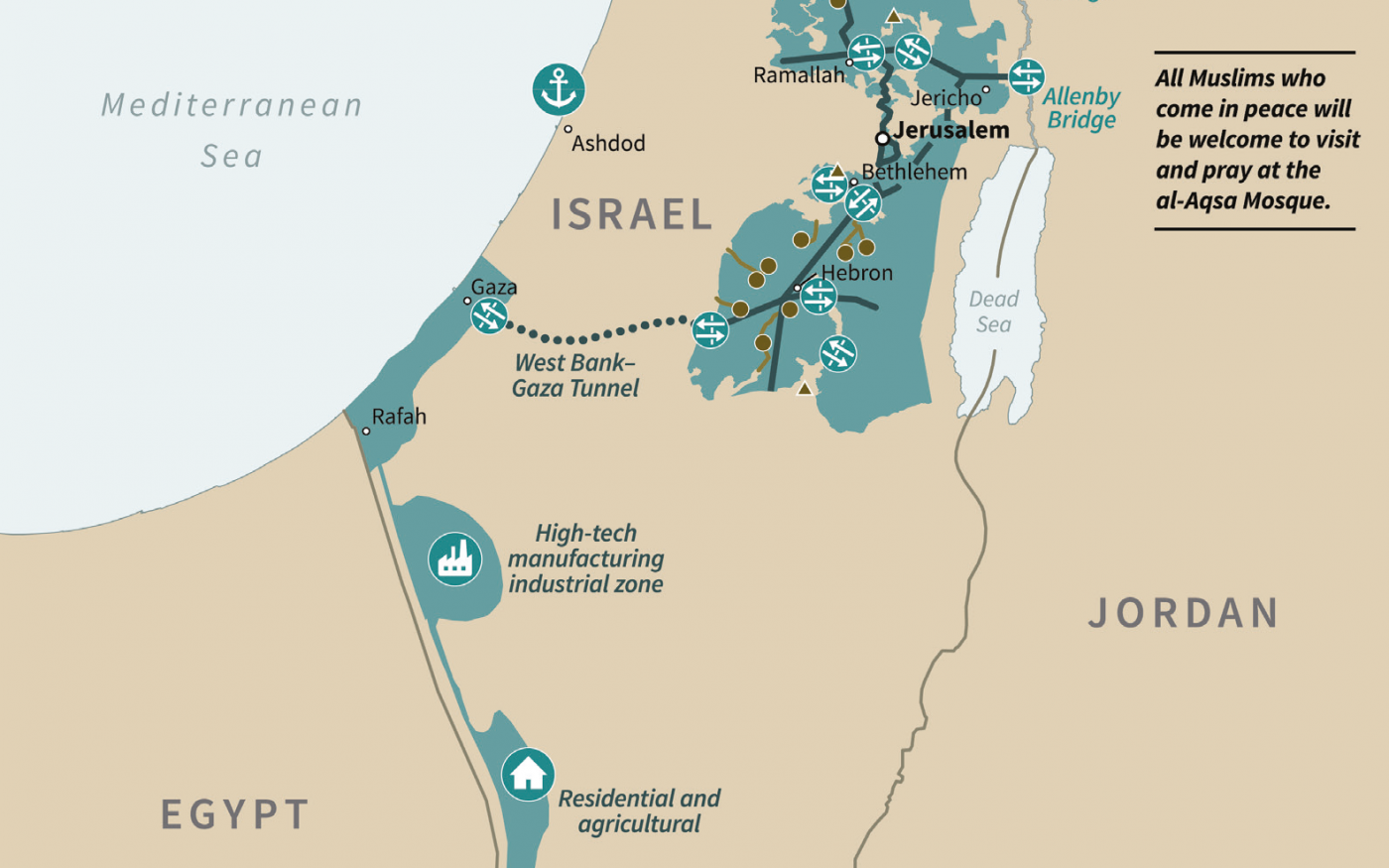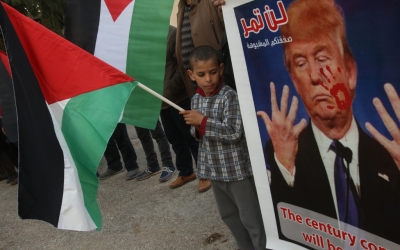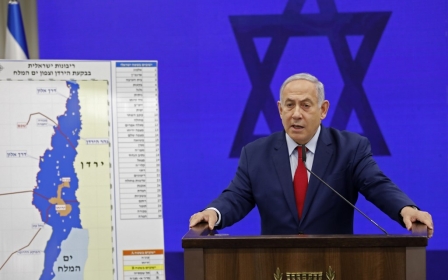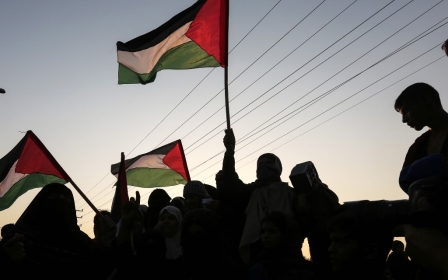How Israel is using the coronavirus emergency to annex the West Bank
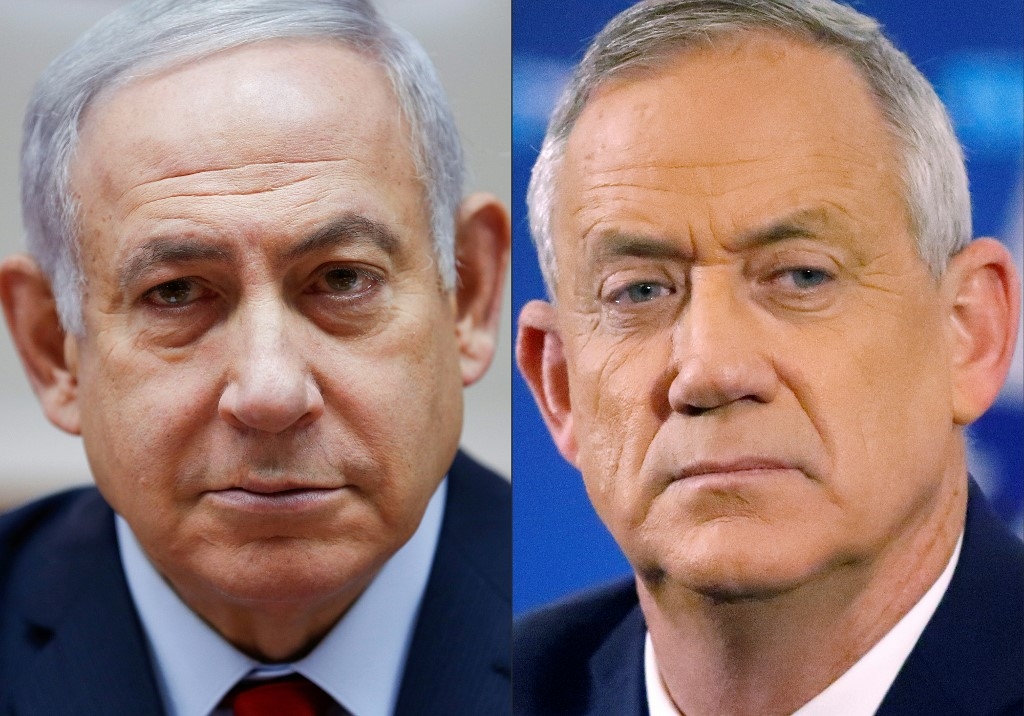
Israeli Prime Minister Benjamin Netanyahu and his main rival, Benny Gantz, signed a deal this week to form an “emergency” coalition government.
According to Israeli media, Netanyahu’s Likud party and Gantz’s Blue and White alliance envision a rotation agreement for the premiership. Netanyahu would initially remain as prime minister with Gantz as his deputy, and they would rotate after 18 months.
The first response from the US administration came through Secretary of State Mike Pompeo on Wednesday, who said that annexing parts of the West Bank is "ultimately Israel's decision to make". This rude statement reflects the American administration's bias towards Israel.
As a Palestinian, I have witnessed the formation of several Israeli governments during the course of the occupation - none seriously looking for a peaceful resolution of the conflict or a halt to the construction of illegal settlements in the West Bank.
Setting a date for annexation
New MEE newsletter: Jerusalem Dispatch
Sign up to get the latest insights and analysis on Israel-Palestine, alongside Turkey Unpacked and other MEE newsletters
This latest coalition is no exception. What is different is that for the first time, an Israeli government has officially and unashamedly set an exact date to carry out the annexation of West Bank land to Israel.
On 1 July, the Knesset will be able to vote on the annexation of parts of the West Bank, on the basis of the Trump administration’s “deal of the century”. US President Donald Trump’s deal was pre-emptively rejected by Palestinians, as it gives Israel full military control over Palestinians, much of their land, and all of Jerusalem and Israeli settlements.
Palestinians must unite behind a new, clear and more determined strategy to confront the annexation of their land
The vote would be held “as quickly as possible”, the agreement states, with no delays at the committee stages. Although coalition members would be able to vote as they see fit, the pro-annexation camp in the Knesset is likely to have a majority.
The so-called “emergency” coalition government, which will last 36 months, was justified to deal with the outbreak of the coronavirus pandemic in Israel. But why is the implementation of the deal of the century considered an emergency for Israel?
Netanyahu has declared many times before that he is willing to annex the Jordan Valley and West Bank settlements upon forming a new government. US and Israeli teams have already drafted maps of the planned annexed territories.
Some experts predict that Israel will annex at least 30 percent of the West Bank. It goes without saying that the annexation would not come in the context of negotiations or an agreed-upon exchange of territories; rather, it would be a unilateral decision that undermines the establishment of any future Palestinian state, putting an end to the “two-state solution” doctrine and resulting in a bantustan-like Palestinian entity.
Propaganda move
This annexation would have a disastrous impact on the Palestinian people’s aspirations for self-determination, and on me personally, as a Palestinian farmer who owns land in Area C.
Should the Israeli government follow the map drawn by Trump’s team, part of Qira, the village in the Salfit area of the West Bank where I am from - as well as perhaps my own farm - would be annexed to the nearby illegal settlement of Ariel.
Palestinian President Mahmoud Abbas has warned the US and Israeli governments not to annex any part of the Palestinian territories. “Do not think that because of the coronavirus we have forgotten about the annexation, Netanyahu’s measures or the ‘deal of the century,’” he said this month, adding that the Palestinian leadership would continue to work against these plans.
It is clear the formation of the coalition government has nothing to do with the pandemic emergency, but rather with political aims. Netanyahu, and now Gantz as well, want to take advantage of the pandemic to implement the Trump deal and annex parts of the West Bank, while both the world and Palestinians are exhausted fighting the outbreak.
The US presidential election is set for November, and this would also be a good propaganda move to facilitate Trump’s reelection.
The Israeli political establishment has united around the agenda of permanent colonisation and annexation, exploiting the unique local and international situation to dictate the status quo as a reality on the ground, with the full support and backing of the US administration.
The need for Palestinian unity
According to Hanan Ashrawi, a member of the Palestine Liberation Organisation executive committee, the unity deal “reveals the true colours of Israeli political parties and proves beyond doubt the death of the so-called left in Israel”. I agree, and would add that the unity government evokes, more than ever, the need to end the Palestinian split between the West Bank and Gaza and to seek reconciliation among all Palestinian political factions.
Palestinians must unite behind a new, clear and more determined strategy to confront the annexation of their land, as Israel and the US have left them with no other option but to resist the plan.
It is time for Palestinians to stop chasing the futile “two-state” illusion and start looking for the “one democratic state” real solution, which grants all people between the Jordan River and the Mediterranean Sea the same rights and obligations as equal citizens, regardless of religion or race.
This remains the only viable solution for the conflict of the century.
The views expressed in this article belong to the author and do not necessarily reflect the editorial policy of Middle East Eye.
Middle East Eye delivers independent and unrivalled coverage and analysis of the Middle East, North Africa and beyond. To learn more about republishing this content and the associated fees, please fill out this form. More about MEE can be found here.



